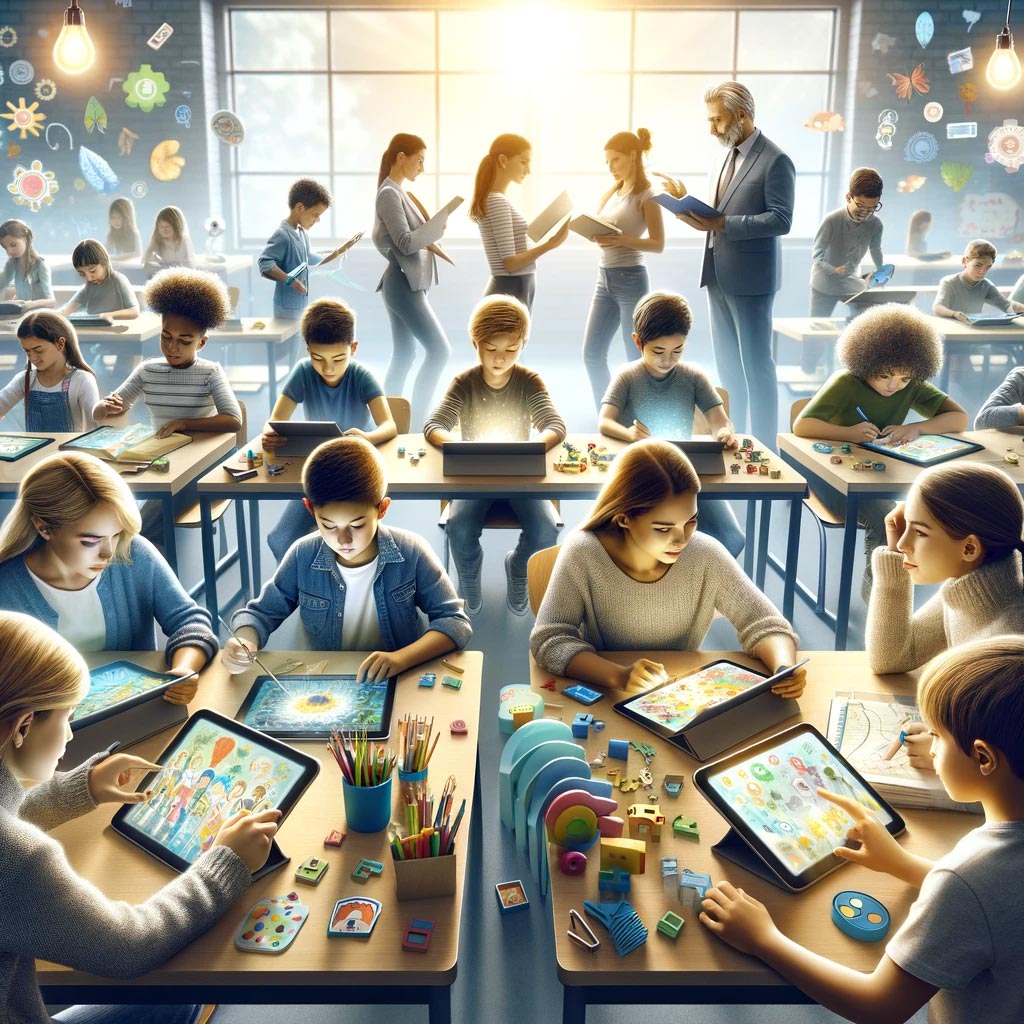In the evolving landscape of education, the concept of personalized learning is gaining significant traction. As traditional one-size-fits-all approaches to teaching become less effective, tailoring education to individual needs is proving to be a more impactful method. This approach not only caters to the unique strengths and weaknesses of each student but also fosters a more engaging and effective learning environment.
Understanding Personalized Learning
Personalized learning is an educational approach that aims to customize learning experiences to fit the individual needs, skills, and interests of each student. This method leverages various educational technologies and teaching strategies to create a more flexible and adaptive learning environment. The goal is to ensure that every student can learn at their own pace and style, maximizing their potential and academic success.
Key Components of Personalized Learning
- Individualized Instruction
Individualized instruction is at the heart of personalized learning. This involves tailoring teaching methods and materials to suit the specific learning styles and paces of each student. Educators use assessments and data analysis to understand each student’s strengths and areas for improvement, allowing them to design lessons that meet those needs effectively.
- Student-Centered Learning
In a student-centered learning environment, students are encouraged to take an active role in their education. This means they have a say in what, how, and when they learn. By giving students more control over their learning paths, personalized learning helps to increase motivation and engagement.
- Flexible Learning Environments
Personalized learning often requires flexible learning environments that can adapt to different teaching methods and activities. This could mean a combination of traditional classroom settings, online courses, and hands-on projects. Flexibility in the learning environment ensures that students can learn in the ways that work best for them.
- Data-Driven Decisions
Using data-driven decisions is crucial in personalized learning. Educators collect and analyze data on student performance to identify trends, strengths, and areas needing improvement. This data informs the development of personalized learning plans and helps track progress over time.
Benefits of Personalized Learning
Personalized learning offers numerous benefits that can significantly enhance the educational experience for students.
- Improved Academic Performance
By catering to individual learning needs, personalized learning can lead to improved academic performance. Students are more likely to understand and retain information when it is presented in a way that suits their learning style.
- Increased Engagement and Motivation
Tailoring education to individual needs helps to keep students engaged and motivated. When students have a say in their learning process and can pursue their interests, they are more likely to stay invested in their education.
- Development of Self-Directed Learners
Personalized learning encourages students to take responsibility for their own education. This fosters the development of self-directed learners who are capable of setting goals, managing their time, and seeking out resources independently.
- Enhanced Teacher-Student Relationships
In a personalized learning environment, teachers work closely with students to understand their needs and support their learning journey. This can lead to stronger teacher-student relationships and a more supportive learning environment.
Challenges and Solutions in Implementing Personalized Learning
While the benefits of personalized learning are clear, implementing this approach can come with challenges.
- Resource Availability
Personalized learning often requires additional resources, such as technology and specialized training for teachers. Schools need to ensure they have the necessary resources to support personalized learning initiatives. This can be addressed through strategic investments and partnerships with technology providers.
- Teacher Training
Teachers need to be equipped with the skills and knowledge to effectively implement personalized learning. Providing ongoing professional development and training can help teachers feel confident and capable in delivering personalized instruction.
- Data Management
Managing and analyzing large amounts of student data can be overwhelming. Schools should invest in robust data management systems and provide training for educators on how to use data effectively.
Conclusion
Personalized learning represents a transformative approach to education, focusing on tailoring education to individual needs. By leveraging individualized instruction, student-centered learning, flexible environments, and data-driven decisions, personalized learning can significantly improve academic performance, engagement, and motivation. While challenges exist, with the right resources and training, schools can successfully implement personalized learning to create a more effective and enjoyable educational experience for all students. Embracing this approach can lead to the development of self-directed learners who are well-prepared for the future.








